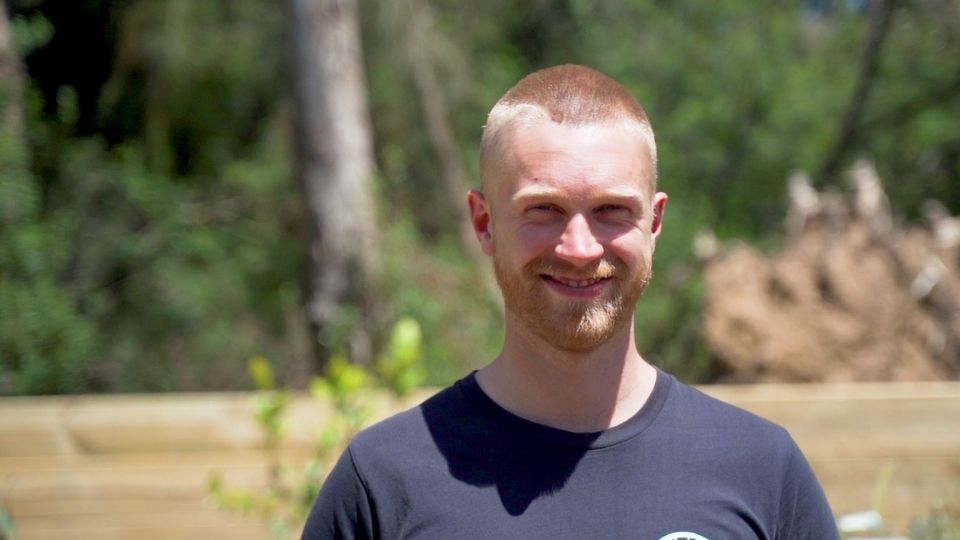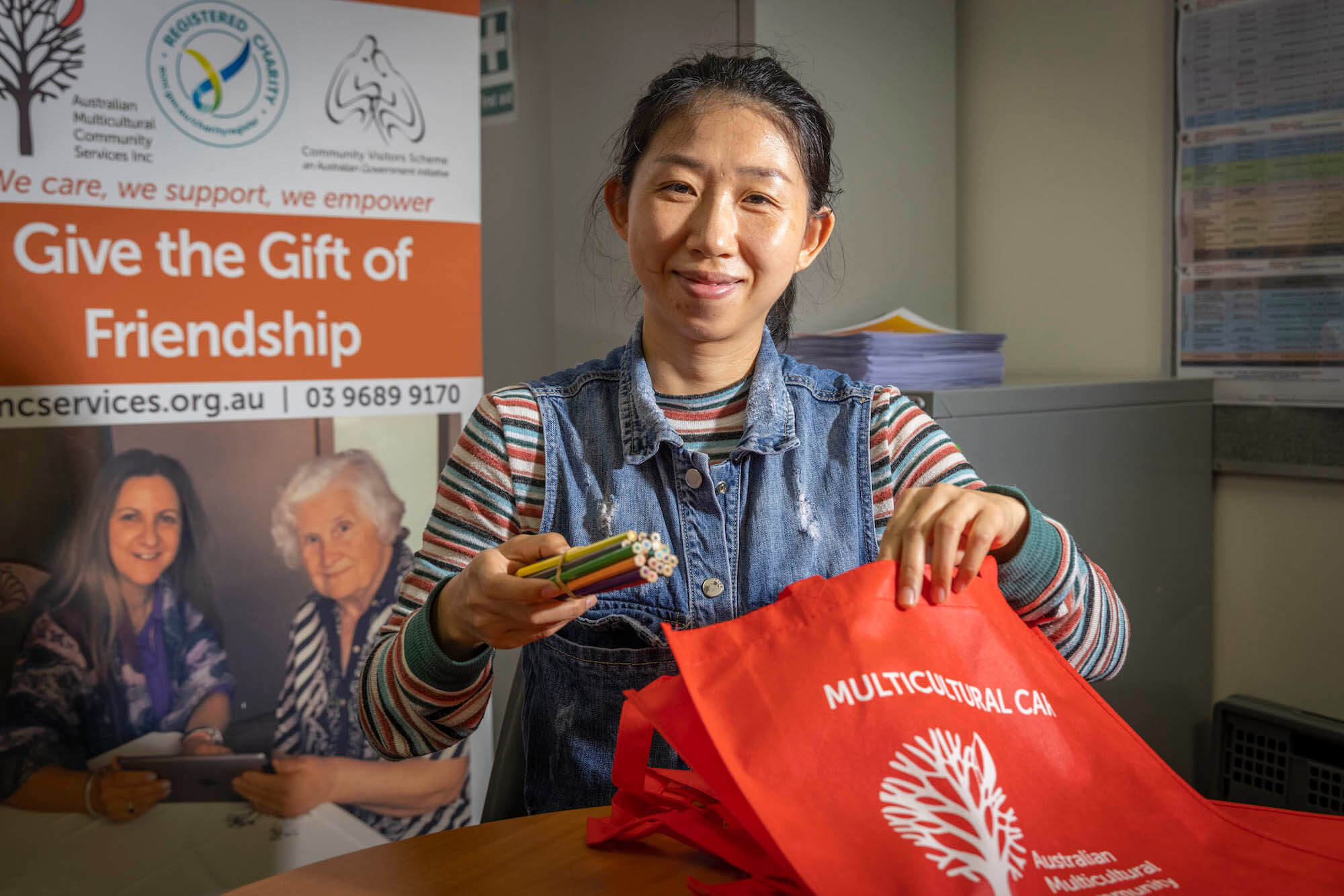
Big changes happen when we have safe and supportive workplaces.
Being inclusive is the best foundation for employing people with barriers to employment from GROW communities.
This means a workplace where staff feel they belong, and are supported with good work practices such as clear inductions, flexible hours, buddies or mentors.
If you can offer sustaining and sustainable jobs, this can be life-changing for individuals and families. And while not every business has appropriate jobs, you may be able to offer work experience or internships for students or job seekers who need a start. Job carving is another option, creating bespoke roles for people with diverse needs.
To find out how your business can be more inclusive, email the GROW team.
Barriers to employment
People (especially people from low socioeconomic communities or families) can face multiple and complex barriers to work.
Looking for work can be a soul-destroying undertaking for someone that is trying their hardest to find employment. It is often stated that ‘unemployed people don’t have jobs because they just don’t want to work’ and that might be the case for a small percentage but is not the case for most unemployed people. When we break it down into the individual barriers that some of these people face, it is understandable that they can feel overwhelmed and disheartened.
A job is life changing, and everyone deserves a chance.
Individual Barriers
- Disability
- No experience
- Mental illness
- Access to transport
- Lack of education
- Bias
- Lack of self worth
- Social isolation
- Criminal record
- Housing issues or homelessness
Systemic Barriers
- Lack of flexible work options
- Lack of awareness and difficulty in complying with laws and regulations related to reasonable adjustments and work, health and safety
- Policies, procedures and practices that unfairly discriminate and prevent individuals from applying for, securing and sustaining a job
- Employment discrimination and bias relating to address, age, sex, gender, multicultural backgrounds etc
Barriers & Influences
Rather than just looking at the individual barriers for a person looking for employment, we need to look at the influences on unemployment. These are the things these individuals have no control over and have not contributed to. We can break these influences into three categories: environmental, systems and personal influences.
Environmental influences – refers to the community or geographical area within which a person lives:
The economic state of the community, the educational options and access to community and health services in their area such as: mental health services; alcohol and other drug services; and dental health. Also, if the community is in a regional or remote area this is also an important factor, as these services are often not obtainable.
Systems influences – these don’t just refer government systems but also organisational systems:
Online recruitment for example is making it difficult for people who don’t have access to the internet and a computer. In some cases, the recruitment, induction and training process is all done online.
Traineeship and apprentice positions now have requirements that can make them feel out of reach for many, such as:
“You will have excellent references and a proven interest in this trade as well as a great work ethic. You must have reliable transport, a white card and a year 12 completion.”
Personal influences – refer to a person’s immediate environment such as their family situation, role models and immediate community:
These influences tend to shape a person significantly. For example, if no one in your family has ever finished year 12 or had a job then you are more likely not to finish school and be long-term unemployed.
Priority Groups
GROW signatories help people looking for work who have barriers to employment either by giving them jobs or buying from businesses who do.
We consider barriers to employment to be any challenge that may prevent a person from getting or keeping a job. Many individuals who face barriers want to work and are fully capable for doing so, but barriers they face may prevent them from getting the opportunity to show their talents.
- Person with a disability, including mental illness
- Residing in a low socio-economic area with limited employment opportunities (people from GROW target postcodes)
- Aboriginal and Torres Strait Islander People
- Long-term unemployed people – people who have not been employed for 6 months or more excluding people undertaking studies
- Disengaged youth – people aged 15 to 24 years not studying and seeking full-time work
- Young People – at risk under the age of 25 years
- Single parents – sole parents that are responsible for dependent or non-dependent children of any age
- Migrants – people who leave their country voluntarily to commence living in Australia and not in sustainable employment for period of 12 months or more
Who is the GROW community?

Sally, 22 - Corio
Sally is a single mum who didn’t finish year 10 and has never had a job before. Sally recently completed a business essentials course and is keen for part time work. Sally’s major barriers are not having any work experience or workrelated referees.
Sally also has social anxiety and knows that she does not interview well, even though she has been working on these skills with her local job provider.

James, 42 - Corio
James was an engineer for many years before he had to flee his home country due to war. James spent several years in a refugee camp before he was settled in Australia. Since coming to Australia, James has found it hard to find full-time ongoing work but has had several farm labouring jobs.
James speaks English but has a strong accent so sometimes people find it hard to understand him.

Jenny, 54 - Whittington
Jenny has four grown up children and is now looking to re-enter the workforce after 30 years at home. Before becoming a mother, Jenny completed a secretarial course and worked with a local accountant for three years as the office manager. Jenny has applied for 40 jobs in the past month ranging from entry level office work to retail work.
Jenny hasn’t even been granted an interview. Although Jenny hasn’t been in the workforce for 30 years, she still has lots of transferable skills.

Cody, 18 - Colac
Cody has lived with 11 different families and been to five schools between the ages of 6 and 16. Cody has been living independently in transitional housing for the past two years and has just completed his senior VCAL.
Cody has depression and Post Traumatic Stress Disorder (PTSD) and lacks positive adult role models in his life. Cody is really keen to work but has not been able to keep a job for more than three months.
Advocate & Collaborate
We cannot make these changes alone.
GROW involves signatories collaborating and working together, from major projects to small initiatives.
It also means each signatory taking individual actions towards our shared goals.
And collectively, we want our voice to be heard – advocating for values-based strategies and developments in our region.
We come together as a GROW network every quarter, to hear stories of achievements and challenges, and raise awareness of how local businesses and organisations can help our whole community grow.
To find out more email the GROW team and read our Good News Stories.


